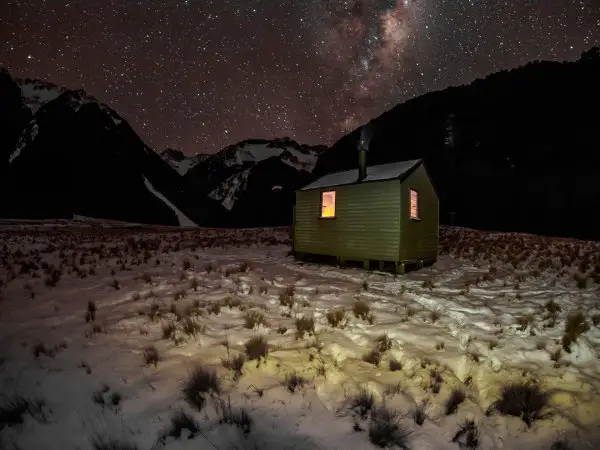This is going to be an opinion heavy piece, with the intention to discuss my thoughts on the difference between fishing for trout as a sport and catching trout.
In some ways, it probably makes me sound quite elitist and maybe even prudish. But I make no apologies. I do not go fishing just to catch trout, I fish for the challenge to trick trout in their natural environment including the challenge to find them and convince them to eat tiny pieces of fluff and metal.
In less flattering words, I want to prove to myself that I am smarter than an animal with a brain smaller than a penny. To make it somewhat sporting, I need to keep the ball in their court and play by their rules.
Not all trout are created equal, and sometimes the difficulty in catching a fish is not in setting the hook but actually reaching its home or figuring out which fly to cast, or what drift to make. Setting the hook, and landing the trout is only the last piece of the puzzle. The real adventure is setting all pieces together to get me there.
Wild trout vs Stocked trout
From a sporting perspective, I value catching a wild trout a whole lot more than catching a stocked fish.
Wild fish fear things coming down from above or passing over top… stocked fish see it as meal time.
While I have nothing against hatchery fish and I know for many fishermen it is their only option. Stock trout also provide plenty of entertainment and even distract the pot hunters away from wild populations.
But I find catching them simply does not provide the same challenge or excitement.
Nowadays I really only fish for stock trout when testing out new gear for lures I want to write about.
Wild trout, are simply more challenging to catch. They require better presentations and more honed techniques. Wild trout act like how trout should, they do not swim the surface in search of pellets.
Natural vs artificial water
There is just something about man-made fisheries that I find a bit off putting simply because they do not share the same aesthetics as a natural stream. When given the choice, I will fish a wild river over a man made canal or reservoir any day.
I do at times fish canals, drains and dams and a wild trout living in a reservoir is ever piece as challenging to land as one which lives in a mountain tarn.
It mostly just comes down to aesthetics and my desire to escape the modern world.
Obese trout that live beneath farms.
Obese trout that live beneath Salmon and trout farms have made a lot of headlines over the last few years. They have broken countless world and line class records.
Whether it is a record breaking rainbows from Lake Diefenbaker or a fat trout from the Tekapo Canals they have one thing in common.
They have grown that large gorging themselves on a diet of energy rich pellets. The Tekapo trout might be wild, but they have lived on a manufactured diet.
I can not be so kind to the Lake Diefenbaker rainbows, they are not wild trout. They are genetically engineered abominations that were designed to grow extra large, and extra fast and the farms in the area provided them with a seemingly endless source of protein to do exactly that.
They are fake fish, feeding on a fake diet.
Give me a 3lb wild fish feeding on mayflies over a 20lb trout fat on pellets. I
Buying trout? Fishing with guides or on private water.
I am going to sound very elitist in this one, and I actually understand why many people choose to use guides. In many cases, they are time poor, and a guide is the quickest way to get them onto fish.
But fishing with a guide is not for me. I feel the use of guides or even private water to be cheating.
Many fishermen choose to buy their way to trout rather than putting in the effort to catch them themselves. I like to refer to them as brought fish. A brought fish is a fish someone paid money to catch, rather than catching them with their own effort.
Whether they employ the services of a guide, who expertly tells them exactly what to do, or maybe they pay for the privileged to fish on private water they are using money to make the fishing easier and reduce the challenge.
To me, the challenge is what make trout fishing so rewarding, and half the challenge is simply finding the fish. Paying someone else to find the fish sidesteps so much of the adventure. It is just not the same.
Helicopters – transportation or cheating?
I personally feel helicopters and float planes ruin the appeal of wilderness fishing. I refer to them as overgrown mosquitoes buzzing overhead.
Trout that live in the middle of nowhere are special, not because trout because they are difficult to catch, they are usually easier than heavily pressured fish close to town. But because they are difficult to access. Without the use of a helicopter, such trout might rarely get fished over.
These trout so rarely see humans, they are not usually line shy and in some cases might even be as gullible and aggressive as a recently stocked fish. They are willing to forgive some very bad presentations at times.
What makes these remote trout so rewarding is that it requires real dedication and determination to reach them. The challenge is in organizing the logistics, and time off work to days hiking over mountains and through valleys to even reach their pool.
Only once there, battered and fatigued from hauling in an overnight pack do you get the chance to test yourself against such fish. The adventure in reaching the trout, is even more rewarding than the actual act of landing one.
With heli-angling all that challenge vanishes. A skilled pilot can drop an angler off at the pool before breakfast and have them comfortably home by dinner. It really just ruins the main challenge such trout offer. The more often the helicopter visits the more educated the trout become.
I feel I should also provide the counterargument in support of heli-fishing. I have discussed this topic with guides who frequently fly anglers in.
The main alternative viewpoint is that by flying to more remote rivers the guides are reducing the pressure on the more easily accessible rivers. So their client gets to fish in solitude, and the local anglers get less pressure on the rivers close to town. Plus so few people actually make the effort to access such wilderness fisheries by their own means. I do see some logic in that position.
There is also the point that many clients are far from physically fit enough, or simply do not have the time available to attempt such a hike. It is the only way they can fish such a spot.
As a side note, in my opinion, there is nothing more demotivating, than watching a helicopter land a couple of miles upstream after having spent the last day to reach the river on foot. Heli-fishing, and the urge to make a quick buck has ruined what made backcountry fisheries special. Their remoteness.

